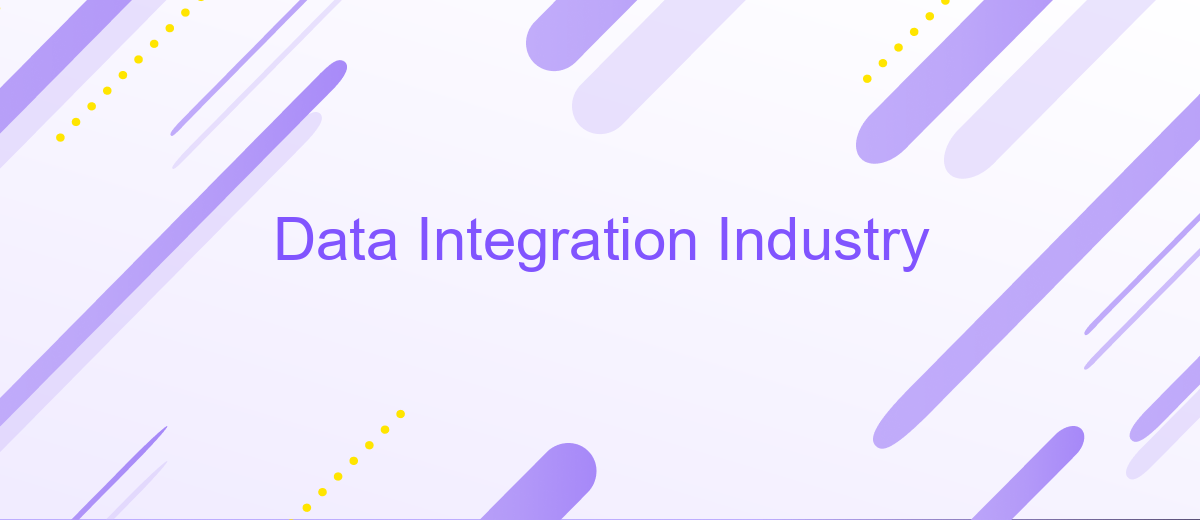Data Integration Industry
The data integration industry is rapidly evolving, driven by the increasing need for seamless data flow across diverse systems and platforms. As organizations strive to harness the power of big data, integrating disparate data sources has become crucial for informed decision-making, operational efficiency, and competitive advantage. This article explores the latest trends, challenges, and innovations shaping the future of data integration.
Overview
The Data Integration Industry has rapidly evolved, driven by the increasing need for businesses to manage and utilize large volumes of data from diverse sources. This sector focuses on combining data from different systems, providing a unified view that aids in decision-making, enhancing operational efficiency, and improving customer experiences. As organizations adopt more complex IT infrastructures, the demand for robust data integration solutions continues to grow.
- Seamless integration of disparate data sources
- Enhanced data quality and consistency
- Improved decision-making capabilities
- Scalability to handle growing data volumes
- Real-time data processing and analytics
Modern data integration tools leverage advanced technologies such as artificial intelligence, machine learning, and cloud computing to offer more efficient and scalable solutions. These tools not only simplify the integration process but also provide real-time insights, enabling businesses to stay competitive in a data-driven world. As the industry continues to innovate, we can expect even more sophisticated and user-friendly integration solutions in the future.
Market Dynamics

The data integration industry is experiencing rapid growth driven by the increasing need for seamless data flow across multiple platforms and systems. Organizations are adopting data integration solutions to enhance their decision-making processes, improve operational efficiency, and gain a competitive edge. The rise of cloud computing, big data analytics, and the Internet of Things (IoT) has further fueled this demand, as businesses seek to integrate diverse data sources into a unified system for better insights and agility.
One of the key trends in the market is the emergence of user-friendly integration platforms like ApiX-Drive, which simplify the process of connecting various applications and automating workflows. These platforms offer pre-built connectors and intuitive interfaces, enabling even non-technical users to set up integrations quickly and efficiently. As a result, companies can reduce their reliance on IT departments, lower operational costs, and accelerate time-to-value. The continuous evolution of such services is expected to drive further growth and innovation in the data integration industry.
Key Trends and Innovations

The Data Integration Industry is undergoing a transformative phase, driven by rapid technological advancements and the increasing need for seamless data flow across diverse systems. Companies are now prioritizing real-time data processing to gain immediate insights and enhance decision-making processes.
- Adoption of AI and Machine Learning: These technologies are being integrated into data platforms to automate data mapping, cleansing, and transformation, making data integration more efficient.
- Cloud-based Integration Solutions: Businesses are increasingly moving towards cloud-based platforms for their scalability, flexibility, and cost-effectiveness in managing large volumes of data.
- API-led Connectivity: The use of APIs is becoming a standard practice to ensure smooth and secure data exchange between disparate systems and applications.
- Data Governance and Compliance: With growing concerns over data privacy and security, companies are implementing robust governance frameworks to ensure compliance with regulations like GDPR and CCPA.
These trends are reshaping the landscape of the Data Integration Industry, enabling organizations to harness the full potential of their data assets. As technology continues to evolve, we can expect even more innovative solutions to emerge, further enhancing data integration capabilities.
Competitive Landscape

The Data Integration Industry is characterized by a dynamic and competitive landscape, driven by rapid technological advancements and increasing demand for seamless data management solutions. Companies in this sector are continuously innovating to offer more efficient, scalable, and secure integration tools that meet the evolving needs of businesses across various industries.
Key players in the market are leveraging advanced technologies such as artificial intelligence, machine learning, and cloud computing to enhance their offerings. This has led to a surge in strategic partnerships, mergers, and acquisitions as companies strive to expand their capabilities and market reach.
- IBM Corporation
- Microsoft Corporation
- Oracle Corporation
- Informatica
- SAP SE
As competition intensifies, companies are focusing on delivering more comprehensive and user-friendly solutions. They are also prioritizing customer support and service to differentiate themselves in the crowded market. The ability to integrate diverse data sources efficiently and securely remains a critical factor for success in this competitive landscape.
- Automate the work of an online store or landing
- Empower through integration
- Don't spend money on programmers and integrators
- Save time by automating routine tasks
Future Outlook
The future of the Data Integration Industry looks promising as businesses increasingly seek seamless connectivity between diverse data sources. With the rise of cloud computing, IoT, and big data, the demand for efficient and scalable data integration solutions is expected to grow. Organizations will prioritize real-time data integration to enhance decision-making processes and improve operational efficiency. The adoption of AI and machine learning will further revolutionize the industry, enabling more intelligent and automated data integration workflows.
Services like ApiX-Drive will play a crucial role in this evolving landscape by providing user-friendly platforms that simplify the integration process. ApiX-Drive offers a no-code solution, allowing businesses to connect various applications and automate data flows without extensive technical expertise. As more companies recognize the value of integrated data for gaining insights and driving innovation, tools that facilitate easy and effective data integration will become indispensable. The future will likely see more advanced features and greater accessibility, making data integration an integral part of modern business strategies.
FAQ
What is data integration?
Why is data integration important for businesses?
What are the common challenges in data integration?
How can businesses automate data integration processes?
What are the benefits of using a service like ApiX-Drive for data integration?
Apix-Drive is a simple and efficient system connector that will help you automate routine tasks and optimize business processes. You can save time and money, direct these resources to more important purposes. Test ApiX-Drive and make sure that this tool will relieve your employees and after 5 minutes of settings your business will start working faster.


